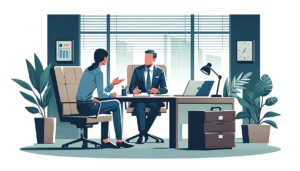Overlooking sleep can cost our career
- 6 Min Read
HRD Connect spoke with Dr. Neil Stanley, Independent Sleep Expert and author about why sleep is so integral to our everyday working lives and how we should never underestimate the importance of sleep.
- Author: Emily Sexton-Brown
- Date published: Nov 19, 2018
- Categories

 Do you think the importance of sleep in our working lives is overlooked?
Do you think the importance of sleep in our working lives is overlooked?
I think the problem is that sleep does not really ‘fit’ in to our working lives. Ordinarily sleep is something we do exclusively in our own time, so while employers can introduce health food for their staff or give time and encouragement for exercise, any advice concerning sleep that is provided in the workplace has to be acted upon outside of the workplace, where the employer has little if any control. This is coupled with the seeming acceptance on the part of the employee that turning up to work and performing adequately is sufficient and that there is no obligation upon them to turn up to work well-slept and feeling at their best.
Why is sleep so important?
Good sleep is vital for good physical mental and emotional health and it is as important as good diet and exercise. 45% of us are unhappy about the amount or quality of sleep we’re getting yet poor or inadequate sleep can have serious consequences on overall health and wellbeing and has been shown to lead to:
- Lower immunity
- Poor performance
- Mood changes
In the longer term, inadequate sleep is associated with a greater risk of a number of diseases, such as:
- Heart disease
- Depression
- Diabetes
- Obesity
- Alzheimer’s
We live in a society where we are bombarded with health messages and most of us realise the importance of good diet and exercise but we seem to have forgotten that sleep is equally vital for our well-being.
Sleep is not just what goes on during the hours of darkness, there are also important daytime consequences of poor or inadequate sleep which negatively affect the way we feel and perform during the day. Why do we go through life feeling so tired and run down? You know how good you feel after a good night’s sleep – just imagine how much better you would feel/perform if you felt like that every day.
Sleep is a biological necessity but it is also important to remember that good sleep can be a most wonderful pleasure. So, if you want to live life to the full you should give sleep the importance in your life that it deserves and make time for getting a good night, every night.
How can we bring this importance to the forefront of people’s minds?
I think the important thing is to have clear messaging. It is interesting that the government provides quite detailed advice about diet/nutrition and exercise but there is little, if anything, on sleep. As I say in my book ‘How to Sleep Well’ good sleep is about feeling better tomorrow and the next day, and the next day. We spend so much time, money and effort searching for ways to feel better and healthier and yet for some reason we neglect sleep, the one thing guaranteed to work. It would help if there was some positive messaging about sleep. When when did you last hear a real ‘celebrity’ endorse good sleep. Sleep needs to be made ‘sexy’ and desirable again.
Do you know any stats that have been published about the importance of sleep in the workplace?
The recommended amount of sleep is usually considered to be 7-9 hours, but a study by Hult University Business School showed that the professionals surveyed averaged only six hours and 28 minutes. According to the National Sleep Foundation’s 2008 annual Sleep in America survey, 40 percent of respondents were impatient with others at work; 27 percent frequently found it hard to concentrate; and 20 percent had lower productivity than they expected.
A study published in Sleep reports that over 23% of the workforce is affected by insomnia, losing nearly eight full days of productivity per year, costing businesses an annual loss of $2,280 per employee. Research by Rand Europe using data from 62,000 people in five major economies which concluded that the economic cost of tired employees (being less productive or absent from work altogether) amounted to almost 2% of GDP
Do you think the likes of Arianna Huffington and other sleep ambassadors have done a good job in spreading the awareness?
The problem is that, however well-meaning people like Arianna Huffington are, all they seem to do is add to the lack of clarity concerning the importance of sleep and how to get it. It puts me in mind of the following quote: “Nearly all newspapers reprint from leading medical journals timely practical hints for gaining and preserving health, and no intelligent reader need remain ignorant of the hygiene of rest and slumber. And yet, from pallet of straw or pillow of down, some of us still stare sleeplessly into the hollow darkness, until morning dawns upon tired eyes sunken in dark-ringed circles. With all that science can do for us, why is it that some of us do not sleep?” (The Moral Aspect of Insomnia. By Agnes H. Morton. The Chautauquan January 1901). One hundred and seventeen years further on I am not sure that we are in a better position, we have lots of information and advice but we are still not sleeping.
What would be the best advice you’d give to the UK workforces about sleep?
Getting good sleep is a choice you have to make, you can choose sleep to be the thing you want to do at the end of the day, or see it as the thing you must do. Getting good sleep will make you happier, heathier, and – in terms of your job – more productive. Why not experience life without a sleepy brain? Good sleep makes the time you are awake better. Make sleep a priority in your life, work out how much sleep you need (this is simply the amount that allows you to be awake and alert during the day), and try to get that sleep each and every night. Once you see sleep is important, this will lead you to doing those behaviours that are beneficial to sleep and help you identify those lifestyle choices, like binge watching the latest blockbuster, that aren’t good for sleep.









